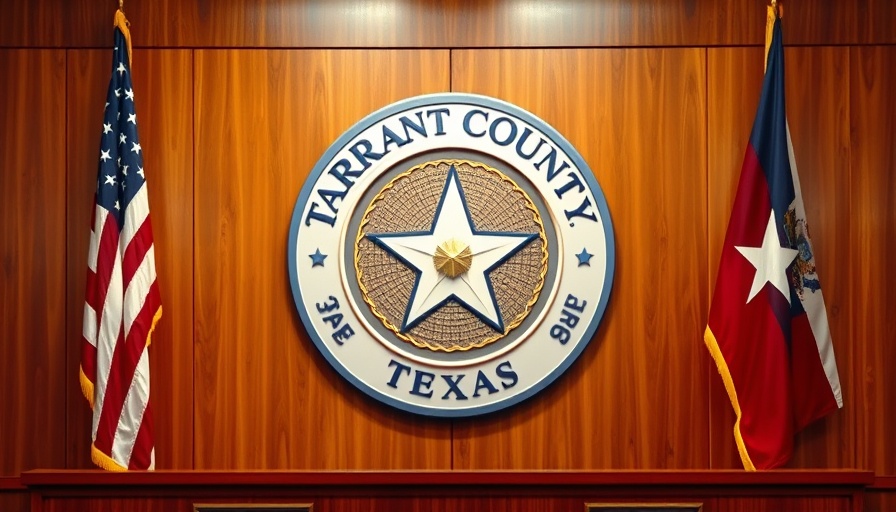
Disagreements on Property Tax Rate Shape Tarrant County’s Budget Planning
In a recent meeting of Tarrant County commissioners, a notable divide emerged regarding the proposed property tax rate cuts, showcasing the complexities of fiscal governance in local communities. The proposed new tax rate stands at 18.62 cents per $100 valuation, translating to an average annual tax bill of approximately $516 for homeowners in Tarrant County, slightly lower than what residents paid last year.
Republican County Judge Tim O’Hare has heralded this budget proposal as a win for taxpayers, emphasizing that it protects citizens while still delivering essential services. "For the third year in a row, Tarrant County taxpayers were protected and prioritized," O’Hare remarked. His administration advocates for responsible governance, believing that effective public service can be achieved even with reduced revenue streams.
The Strain on Public Services
Contrarily, Democratic commissioners like Roderick Miles Jr. are voicing grave concerns over potential compromises to public services. With the new budget leaner than its predecessor, nearly 70 positions within county departments are set to be cut, which could impede their ability to meet community needs.
"It’s time to stop hiding behind the word ‘cut’ and acknowledge the truth, that this, my friends, is harm, plain and simple," Miles emphasized, highlighting that reduced staffing will undermine his office's capability to serve constituents effectively.
Community Perspectives on Tax Reductions
The discussions surrounding tax reductions resonate deeply within the Tarrant community. Residents like Joe Palmer have spoken out in support of the proposed tax cuts, arguing that reducing taxes can assist families facing high housing costs. However, the tension between wanting lower taxes and maintaining quality services is a dilemma many residents find themselves navigating, showcasing the ongoing conversation on fiscal priorities.
The Impacts of Redistricting
Further complicating matters, the recent redistricting within Tarrant County has expanded geographical areas represented by individual commissioners, making it harder for them to address the diverse needs of their constituents. Commissioner Miles pointed out that his district now stretches from southeast Fort Worth all the way to Grand Prairie, which amplifies the challenge of managing resources effectively with fewer staff members.
Looking Ahead: What This Means for Tarrant County
As the commission gears up for a final vote on the property tax rate at their next meeting, the implications of this decision remain significant for the community. This clash of ideas not only highlights the inherent tension between regulating taxation and delivering services but also points to broader questions about how local governments prioritize and manage their responsibilities to residents.
It's crucial for community members to stay informed and engage in discussions about these pivotal issues. As Tarrant County navigates this negotiation, the essence of community governance hangs in the balance.
Call to Action: To foster a vibrant discussion, we invite residents to share their thoughts on the proposed tax changes. How do you feel about the potential impact of budget cuts on services within our community? Let your voice be heard!
 Add Row
Add Row  Add
Add 




Write A Comment